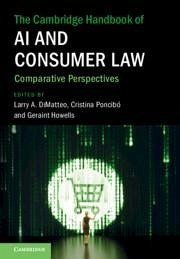
AI Development and the 'Fuzzy Logic' of Chinese Cyber Security and Data Laws
Versandkostenfrei!
Versandfertig in 1-2 Wochen
43,99 €
inkl. MwSt.
Weitere Ausgaben:

PAYBACK Punkte
22 °P sammeln!
This book explains the rapid rise of China's innovation system and provides a roadmap for the prospects of China's AI development, within the bounds of China's data laws. It will appeal to lawyers, policymakers, venture capitalists, entrepreneurs, the global technology industry as well as those interested in China's entrepreneurial ecosystem.














